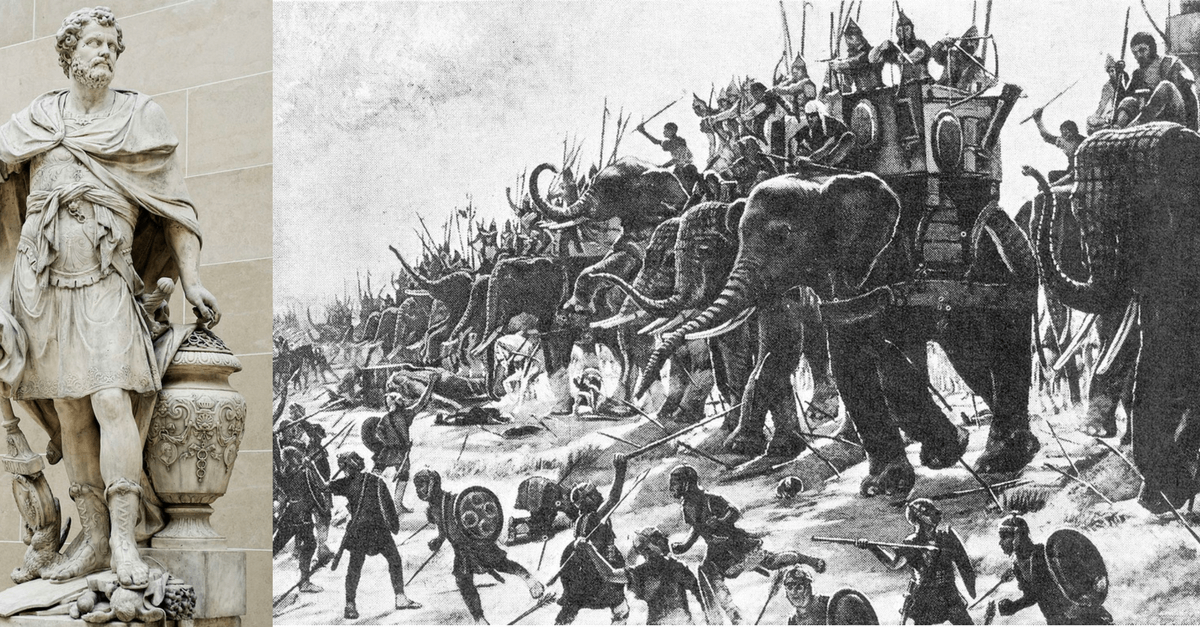Hannibal Barca was easily one of the most talented tacticians in the ancient world. He gave the Romans a good handful of crushing defeats. He had only one major defeat on the battlefield against Scipio at the Battle of Zama. That one loss ultimately ended the war.
The harsh peace terms so limited the power of Carthage that, a generation later, the Romans were able to simply sail over and destroy the great city once and for all. But what if Hannibal had won another overwhelming victory at Zama? How would the course of the second war, or future wars, pan out?
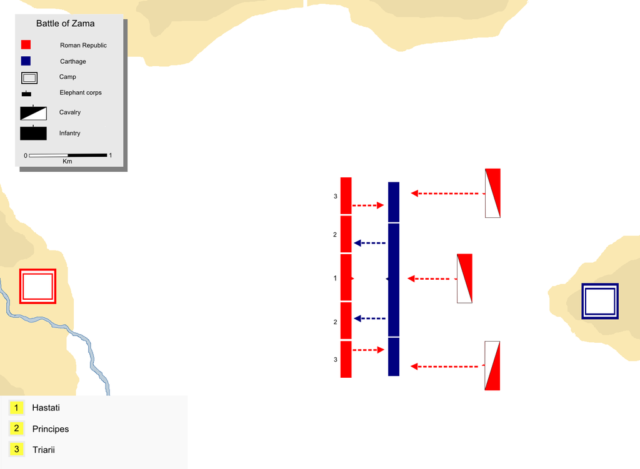
As with most ‘what if’s,’ we might as well make Hannibal’s victory a complete one. The entire Roman army at Zama killed or captured and Scipio dead in the fighting. The most important thing to remember is that, by the Battle of Zama, Rome was certainly winning the war.
Rome had invaded and taken essentially every part of Carthaginian-owned Spain. This deprived the Carthaginians of vast amounts of wealth from Spanish mines and hordes of more than capable Spanish mercenaries.
The island of Sardinia was precariously held by the Romans but was well defended during the war after a disastrous Carthaginian invasion attempt. Much, or really all, of Sicily, was conquered for Rome by this point as well. The mighty stronghold of Syracuse had defied Rome, but eventually fell to an assault. In Africa, they even lost a few large battles and lost the allegiance of their Numidian ally Syphax, before Hannibal even got to the scene.
Hannibal had terrorized Italy for well over a decade, but his zone of power there had steadily shrunk to the point that he only held Western Bruttium, the “toe” of Italy, before he left for Zama.
Even victorious, it would be an absurd strategy to try to re-invade Italy. The Italian cities that had flipped to Hannibal had reverted or were brutally punished by Roman armies. The other, loyal, cities had stood with Rome when all certainly seemed lost so another invasion would not shake their loyalty.
Essentially, the very strategy Hannibal attempted (by invading) was to turn the loosely allied cities of Italy against Rome. After he had left, this strategy was played out and had no chance of working with a second attempt.
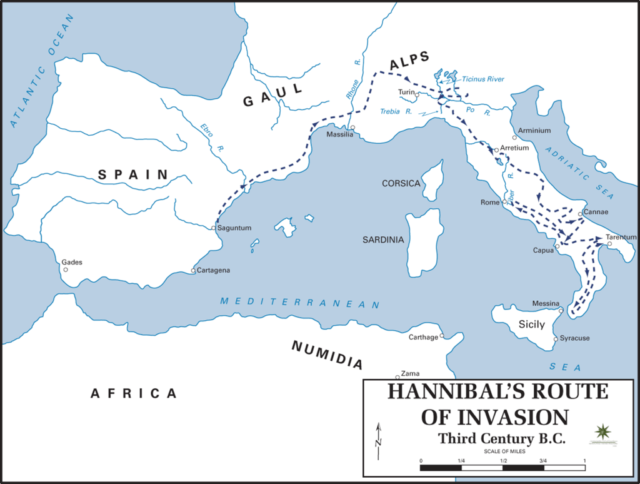
So what would the Carthaginians do? The answer is rather dull, but they would probably sue for peace as soon as they could. They had already sought a peace with Scipio earlier but broke this peace when they found out that Hannibal would soon be in Africa.
The only army of note that Carthage had was Hannibal’s veteran army. If they were victorious at Zama, Carthage would simply leverage the victory and the fact that Africa was now defended by Hannibal to negotiate a better peace deal.
What would the Romans do? Again this would probably be about as boring. The strategy to invade Africa was a very unpopular one among the elite of Rome. Fabius, the general responsible for the defensive Fabian Strategy that eventually hemmed Hannibal into Bruttium, sought an end to the war.
The most aggressive leaders of Rome during the war were Scipio and Marcellus. Marcellus fought Hannibal to a few stalemates within Italy, quite a feat, but was eventually caught in an ambush and killed. Scipio perished in Zama. This served as a grim reminder of the possible fate of anyone else wanting to invade Africa.
If peace were not achieved, what would happen? The Romans would still almost have a guaranteed victory. The Carthaginians had always been a naval power, but not so during the second Punic War. The Romans had naval superiority from the very outbreak of war; it is one of the reasons Hannibal took his Alpine route.
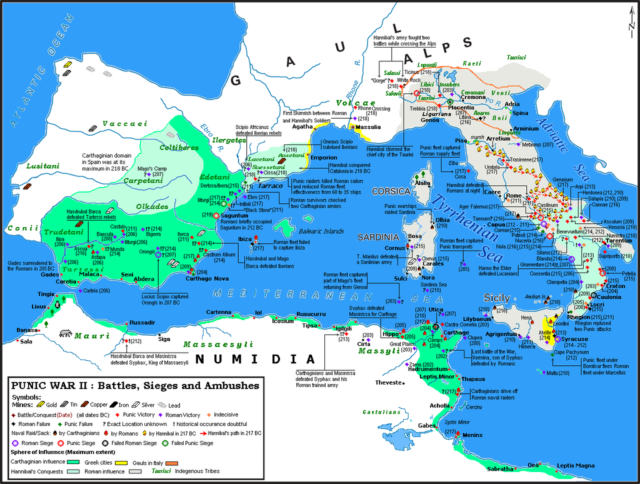
When war broke out, the Romans won several naval victories and had no problem raiding along the coasts of Spain and Africa. Had the war continued, the Romans would simply have boxed the Carthaginians in. They would also have financially supported their Numidian ally, Massinissa, assuming he survived at Zama. If not, Numidia might be a war zone.
Hannibal’s only real option would be to reinvade Spain. This is not unreasonable, but it would leave Carthage largely undefended and economically crippled by blockades and raiding. Hannibal would have to retake Numidia to the west and slip by Roman fleets patrolling between Spain and Africa. A chance, but possible with the limited ancient naval capabilities.
In Spain, Hannibal would only have had a fighting chance and very likely years of campaigning just to reclaim Carthaginian holdings. Even without Rome sending armies to oppose him there. Rome had a much easier time sending soldiers to Spain than they did launching an African invasion. Carthage might have been able to slip an army into Sicily, but these would be the only two fronts; with the exception of the Carthaginian-allied Macedonians to the east.
With such a two-front war, and the Carthaginians already close to war exhaustion, it is impossible to see much in the way of a Carthaginian victory, even with several more incredible victories from Hannibal. The only real outcome would be better peace terms for Carthage.
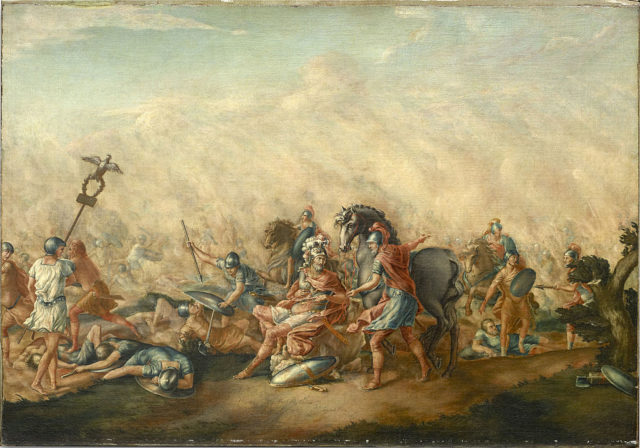
Given that outcome, there would almost certainly have been a third war as there was in history. The third war occurred over fifty years after the second – instigated because of lingering fears of Carthage. Even with Carthage being a shadow of its former self, every speech Cato the Elder gave called for its destruction. The third war was essentially unprovoked; it was a single siege and then the destruction of the city.
Even if the peace terms were much better after the second war, Rome would still have kept a firm hold on their naval supremacy. If the Carthaginians had been able to get Spain back, there might have been fighting there, but without Hannibal, they would be overwhelmed by Roman numbers. A concerted effort then could easily have besieged and then destroyed Carthage as well.
It is strange to think that Scipio’s greatest victory might not have changed history too much, but because it is what really happened we can look at it differently. Rome’s victory at Zama crushed any hope of a favorable peace, and the animosity between Rome and Carthage all but ensured that another war would come eventually. Zama just made it easier for the Romans to win the Third Punic War and destroy Carthage.
